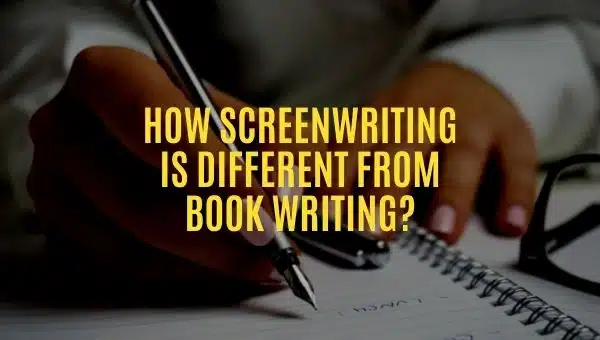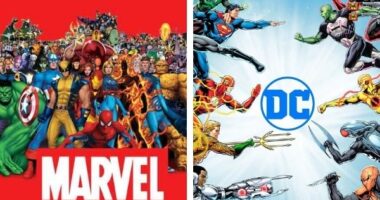Screenwriting is a niche form of writing, where writers use dialogues to write a screenplay. Any drama you may have seen or read, from Shakespeare’s ‘Macbeth’ or Shaw’s ‘Arms and the Man’ to Rowling’s ‘The Cursed Child’, is a play. And when the play is to be constructed on a screen, such as a movie or TV show, it is a screenplay. Screenplays are replete with acting and stage directions, and screenwriters write them keeping in mind the visual aesthetic of a screen. Although they’re a form of scribe that tell a story, they’re obviously different from books. Here we have explained how screenwriting is different from book writing.
How Screenwriting is Different From Book Writing?
Absence of visual cues and descriptions
Screenplays do not emphasize on the descriptions of a place. Even if they do, it is very brief, concise and to the point. The creation of the visual aesthetic on the screen is the job of the filmmaker and cinematographer, not the screenwriter. Thus, there wont be elaborate sensory descriptions as there are in Books. This fundamental difference is because books use verbal descriptions to create atmosphere and set the mood and tone. But screenplays don’t need this since the mood and tone is created with the help of visuals. Thus, using words to describe what visual scenes will is unnecessary and a waste of time.

Presence of action and stage directions
Screenplays may not need descriptions, but they do need action and stage directions. The filmmaker uses these to navigate the film to make the acting stand out. The amount of directions depends to a large extent on the screenwriter. Shakespeare, in his plays used very little stage directions while George Bernard Shaw uses elaborate directions. Stage directions basically outline what a set will look like, such as the positioning of props or actors on the stage. For example, the position of a sofa, or the direction in which a chair faces. In addition, there are acting directions, which are instructions for actors. These would include the placement of hands, cues for tears or laughter, etc.
Categorization according to scenes rather than chapters
A structural difference between a book and a screenplay is that they are categorized differently. A book makes use of a chapter, which is a verbose accumulation of one or several scenes. But in a screenplay, there might be acts with a number of scenes. The categorization depends on the location of a scene. In Shakespeare’s Merchant of Venice for instance, Portia’s plot at Belmont will be in a different scene from Antonio and Bassanio’s scene at Venice. Shylock’s action will also take place in a separate scene on a street. When the actors’ lives collide, this will be a different scene in a specific place. Each scene advances the plot in a specific, tangible way and ends on a note of suspense or heightened emotion.

Crisp, dramatized dialogue as opposed to interior monologue
In a screenplay, dialogue assumes primary significance. Since the writer strips his screenplay of descriptions and inner happenings of a mind, he needs to lay emphasis on dialogues. The dialogues need to be powerful, relevant, not must not seem artificial because they helm the screenplay. They must be impactful enough to create a visual in the filmmaker’s head that he can then materialize on the set.
Less emphasis on language and linguistic devices
This ties in with the previous point as well. Books have a lot of emphasis on how the language flows. Whether it is matter-of-fact writing like George Orwell’s or flowery writing like Jane Austen’s the writing needs to stand out. It should transport you into a separate world. But since screenplays are adapted on the screen, the language needs to be more relatable than flowery. It should be the language of daily conversation. The language also has to be very precise and should convey a lot in a very few amount of words. However, in screenplays, the ideas need to stand out and the dialogic language should be impactful and innovative rather than verbose.
Also Read: 7 Marvel Characters Inspired By DC Characters




